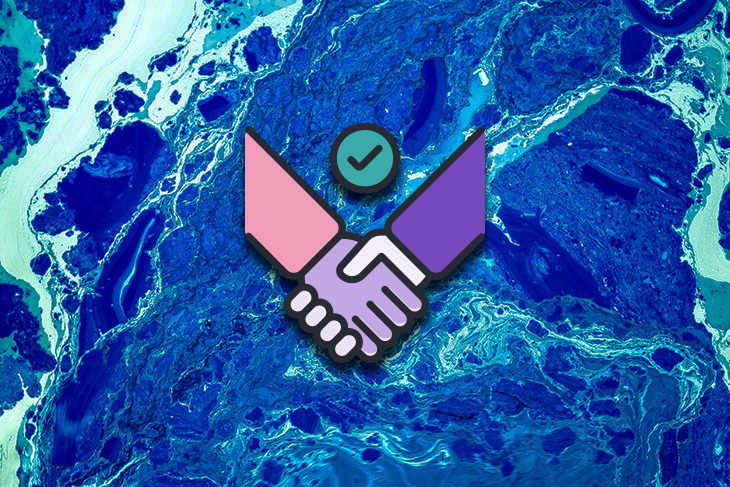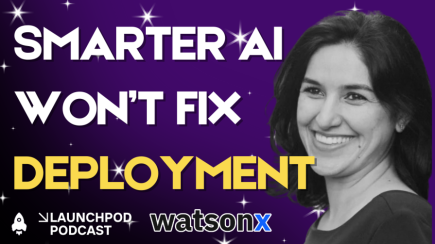Editor’s note: This post was updated on 14 April, 2023 to consolidate similar questions and add four new questions commonly asked during product manager interviews.

Product manager interview questions are hard, and for good reason.
Spots for product manager jobs are limited. After all, companies generally need fewer product managers than engineers or designers. That demand-supply difference makes the job market very competitive for both entry-level and experienced product people.
If you want to get into the industry or advance your product management career, you must do better than just OK in your next product manager job interview. You need to differentiate yourself from hundreds of other candidates. The key is preparation.
In this guide, we’ll walk you through how to answer some of the most commonly asked product manager interview questions, including:
As a bonus, we’ll also offer tips to help you prepare for behavioral questions that you might encounter during a product manager interview.
As straightforward as it is, this is one of the most critical questions to prepare for. You’ll hear it in literally every product manager job interview you take — and “tell me about yourself” comes up in probably in every job interview in general.
Companies are looking for passionate employees. The PM role comes with a lot of stress and responsibility, and people who get into product management just for money or prestige will quickly burn out. This interview question gives you a chance to explain your background and seeks to validate whether you have what it takes to thrive in the role.
This question is an excellent opportunity to offer the recruiter snippets of stories you’d like to share during the interview. Treat it as your opportunity to make a first impression and spark the recruiter’s interest, not as just an icebreaker.
Product management is a vaguely defined term that differs a lot from company to company. In some companies, product managers focus more on execution; in others, they’re more involved with discovery or strategy. And establishing and communicating a product vision is one of the essential jobs of a product manager, regardless of the company.
People want to make sure you have experience crafting and maintaining a product vision as a primary part of the PM role. If you don’t, you at least should be able to describe a vision of the products you worked on.
It’s critical to establish a shared understanding; both the interviewer and interviewee should view product management in the same way to avoid disappointment.
This is one of my favorite product manager interview questions. There’s a difference between delivering an app for 50 million users vs. building an internal product for five internal users. Understanding the most impactful product you delivered can quickly reveal the scale you operated on.
Past performance is some kind of indicator of future performance. Recruiters believe that your biggest successes more or less reflect what type of impact they can expect you to deliver for the new company, and that you can and have learned from your mistakes.
Further, taking ownership and accountability for your failures is an important part of being a successful product manager. The scale of your failures indicates the scale of your impact.
Without a clear strategy, products often become a combination of not related features. Great product managers are comfortable working with product strategy.
This is another classic product manager interview question. I treat it as an easier version of the “How would you improve X?” question. Here, the recruiter throws you a bone and allows you to choose the product yourself, so you had better be prepared!
Most people don’t like deadlines, but we need them. Without deadlines, planning, estimating, and aligning teams would be impossible. Product managers must feel comfortable working with deadlines, and getting the whole team to commit to one is the hardest part.
Building products is a team sport, and even the best teams have conflicts. In theory, the more conflicts you’ve resolved in the past, the better leadership material you are.
This is a great question to gauge whether or not you did your research. Do you really understand the product and who it’s trying to serve? Did you look into its specific features and differentiators?
Time management is one of a product manager’s greatest balancing acts. Sometimes it feels like I have pre-meeting meetings, meetings about those meetings, and so on and so forth.
Having sound time management and prioritization skills is a huge factor for thriving in a PM role, so it’s important to demonstrate that you can handle it.
The way you communicate with your team, as well as with other teams within your organization, says a lot about you. Nobody wants to work with a demanding, rude person. This question gives insight into how you can lead a team and work with others.
Conflict management is nobody’s favorite thing to do. But it’s important to be able to articulate how you manage conflict when it inevitably arises, whether that’s within the team or with external parties.
Being receptive to feedback is necessary for all PMs. You can’t make the product better if you don’t take feedback well, and most of the time, it’s not personal.
Being able to listen to feedback, adjust your process moving forward, and guide the team based on that feedback helps shape great products and even better product culture.
From a personal standpoint, feedback is necessary for growth as a leader, manager, employee, mentor, etc. Whether it’s formal feedback in a 1:1 with higher-ups or informal feedback from your team, you as an employee need to demonstrate your willingness to hear what’s working and what’s not.
It’s impossible to prepare for every behavioral product manager interview question — there are endless possible variations, and every company looks for something different.
That’s why you should prepare stories, not answers. Think about the most defining moments in your product management career — challenges, failures and achievements — and choose a few of the most interesting. Then, refresh the details and practice talking about them passionately.
When you encounter a behavioral question during a job interview, all you’ll need to do is rack your brain for your prepared stories and pick the one that best answers the question at hand.
If you truly don’t have a story for a particular product manager interview question, then pivot the question itself. For example, if you are asked to describe a situation where you said no to a client and you can’t think of any, dodge the question by saying something like, “I don’t recall that particular case right now, but let me tell you a similar story when I said no to my co-worker.”
Sometimes, the key to acing a product manager job interview is thinking on your feet.
Featured image source: IconScout

LogRocket identifies friction points in the user experience so you can make informed decisions about product and design changes that must happen to hit your goals.
With LogRocket, you can understand the scope of the issues affecting your product and prioritize the changes that need to be made. LogRocket simplifies workflows by allowing Engineering, Product, UX, and Design teams to work from the same data as you, eliminating any confusion about what needs to be done.
Get your teams on the same page — try LogRocket today.

Rahul Chaudhari covers Amazon’s “customer backwards” approach and how he used it to unlock $500M of value via a homepage redesign.

A practical guide for PMs on using session replay safely. Learn what data to capture, how to mask PII, and balance UX insight with trust.

Maryam Ashoori, VP of Product and Engineering at IBM’s Watsonx platform, talks about the messy reality of enterprise AI deployment.

A product manager’s guide to deciding when automation is enough, when AI adds value, and how to make the tradeoffs intentionally.